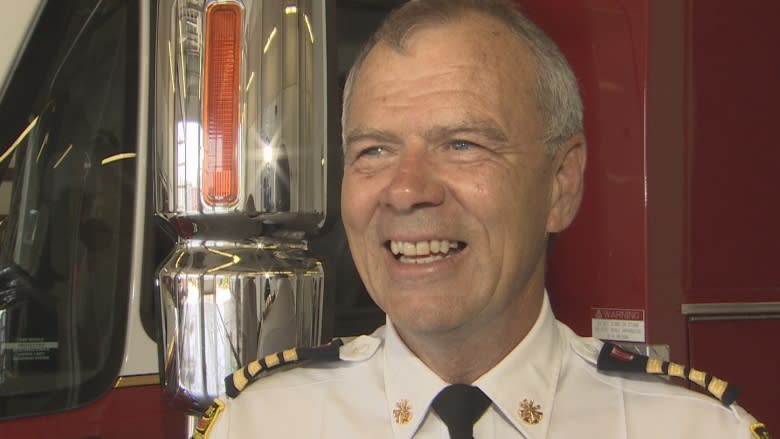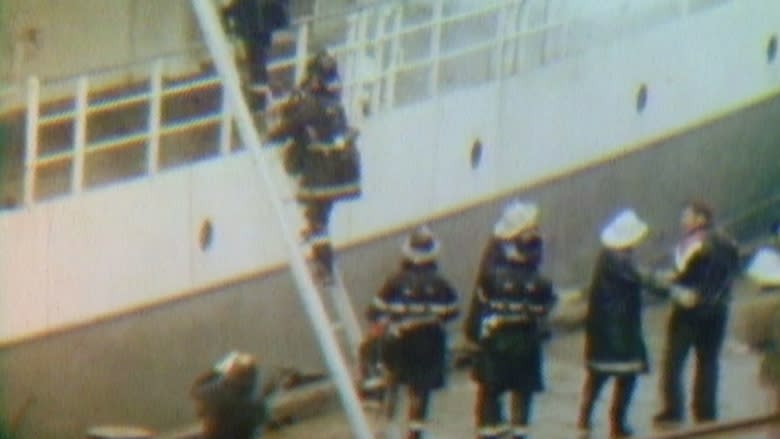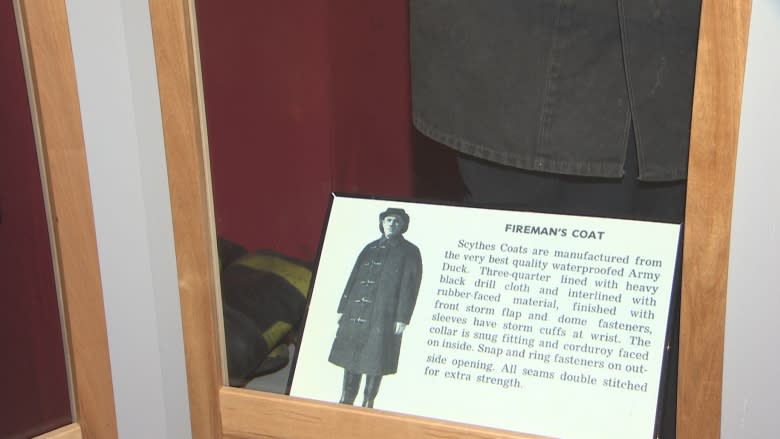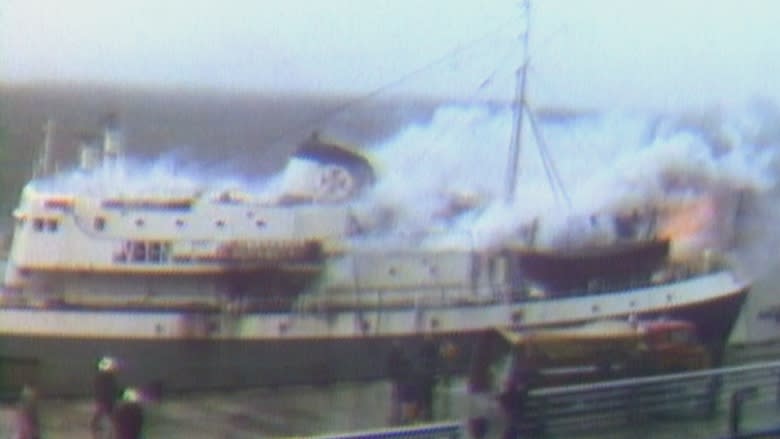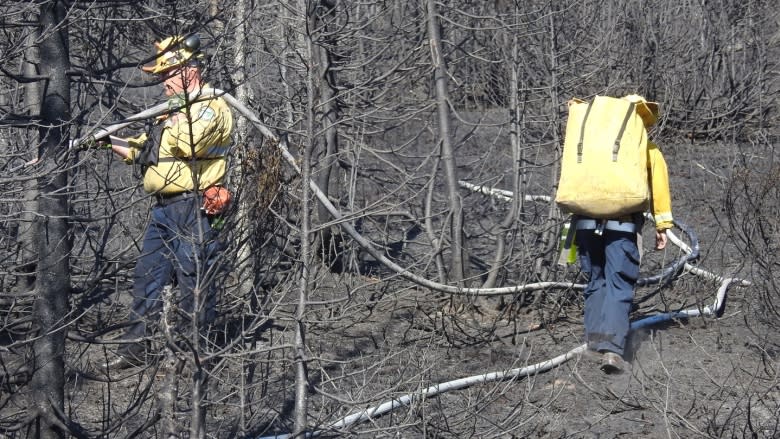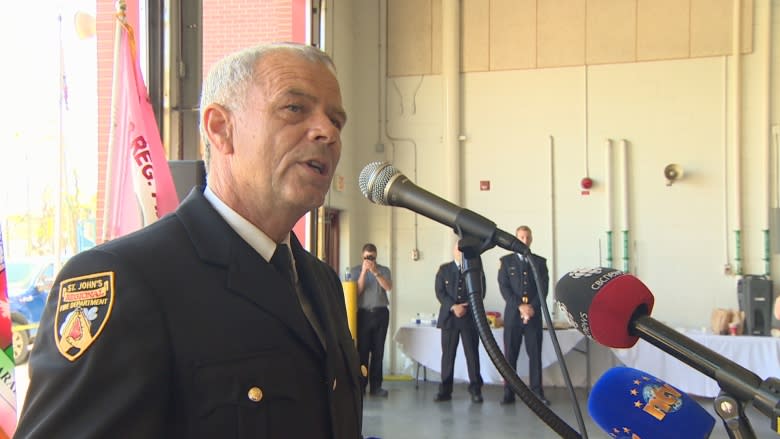41 years a firefighter: Deputy Chief Byrne bids adieu to St. John's Regional
It's been a "fantastic" four decades serving as a firefighter for the St. John's region, but Deputy Chief Don Byrne says it's time to say goodbye to a career he's never regretted.
"It is a little bittersweet. Forty-one years is a long tenure, but it has been an amazing career," says Byrne.
He walked into his first St. John's fire station on Aug. 17, 1977, was given a jacket, shown to his truck, and that was that.
"I'd love to be able to start all over again today instead of finish," Byrne told CBC's St. John's Morning Show.
Over the decades, Byrne's seen many tides turn.
For example, a change in attitude around how firefighters cope with responding to traumatic events.
"Back then it was, 'Suck it up and come on, we've got work to do,'" he said. "Today it's about, 'Stand down, we'll do a debriefing,' and even in later days you'll follow that up to ensure that people are doing well."
For firefighters, the equipment has evolved a lot as well, Byrne said.
"When I joined the job you were given a long canvas coat, a pair of fireball rubber gloves, and your helmet was actually plastic … and it's comical today, but that's what we used," he said.
"We lived through a time where we saw people, one of our own, who received 70 per cent of his body second- to third-degree burns and that was the impetus at that time to receive bunker gear — full pants, clothes, which was far better than what we were wearing at that time."
A particular memory that sticks out for Byrne was the first serious fire he ever responded to — the Vasco d'Orey, a Portuguese trawler that caught fire harbourside in October 1977, killing nine men.
"That one really imprinted on me," Byrne said.
"When I got there, I recognized the vessel because I had worked with the Coast Guard on the John A Cabot and we had hauled that particular vessel in from the Grand Banks when it went foul in its own nets one time."
The good, the bad and the close calls
The well-being of first responders was something that was really brought to the front of people's minds after the 9/11 terrorist attacks, Byrne said.
"We've said it for years: when everything is trying to get out, even the rodents, we're on our way in," he said. "So there's no doubt that 9/11 did bring a great emphasis to what we do."
He's had a number of close calls himself, including one time when he was on the second floor of a factory and he and three other firefighters ran out of oxygen.
Despite all the disturbing things he's witnessed, Byrne said there are plenty of good memories.
"Just this past April I walked into a business and when I walked into the business my wife was with me and a lady came right up to me. 'I know you — you really helped my son.' She went on to relay a story of a car accident he had been in and how I treated him. You know something? That's the best thanks you ever get," Byrne said.
"I had 28 years frontline and for the last 13 years I've been in command positions, so you get to see an awful lot. Most important thing that you can do is take care of each other."
While he's taken more of a leadership role for the last 13 years of his career, Byrne said he's never lost interest in his job.
"You never lose your passion for it. When they go through the door, you're like, wish I was on the back of that again as a firefighter," Byrne said.
"That part of my story will be over. It will be time to start a new chapter. There's lots to be done. There's grandchildren, children, so I'm sure I'll be kept busy. It will be a lot of emotions."
Read more articles from CBC Newfoundland and Labrador

